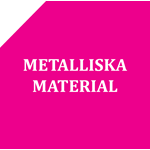Projektinitiativ #108: Corrosion Resistance of Low Temperature Carburized Austenitic Stainless Steels with Additional Passivation Treatment
Austenitic stainless steels have excellent resistance to corrosion and environmental degradation. However, low hardness and poor wear resistances make the surface hardening necessary in certain applications. Conventional carburizing performed at relatively high temperature leads to the rapid precipitation of chromium carbides which impairs substantially the corrosion resistance. It is thus of great interest to explore a new material/technique which provides benefits both in mechanical and corrosion properties. Expanded austenite, is such a promising material for surface modification of austenitic stainless steel.
Yu Cao presents the initiative during the 2017 conference
Expanded austenite is a precipitate free metastable solid solution supersaturated with interstitial nitrogen (N) or carbon (C). The solubility of these interstitials is several orders of magnitude larger than the equilibrium one. Expanded austenite is made by low temperature processes on austenitic stainless steels. When carbon or nitrogen are present in solid solution, it provides an excellent combination of mechanical and corrosion properties. One of the main limitations of the expanded austenite in austenitic stainless steels is the tendency to decompose at elevated temperatures, leading to the formation of chromium carbides/nitrides which can decrease the general corrosion resistance. In this study, we explore the possibility to improve the corrosion resistance by additional passivation treatment on expanded austenite prepared by low temperature carburizing.
The project represents collaboration between academia and companies. Bodycote Värmebehandling AB, the world’s leading provider of thermal processing services, will provide low temperature diffusion treatments (Kolsterising) and subsequent passivation on selected austenitic stainless steel. Researchers from “Institutionen för Material- och tillverkningsteknik, Chalmers Tekniska Högskolan” (Associate Prof. Yu Cao) and “Akademin Industri och samhälle, Högskolan Dalarna (Docent Kumar Babu Surreddi) will bring their experience on corrosion test, material analysis and characterization to evaluate the localized corrosion and passivity behavior of the material in specific application environment at certain temperatures. The related phenomena taken place during the corrosion such as morphology, phase evolution and the redistribution of the interstitials will be studied by means of a combination of different techniques. It is anticipated this i nvestigation is of great importance for new/improved processes and materials design for specific service conditions.
Namn Yu Cao
Organisation Chalmers University of Technology

